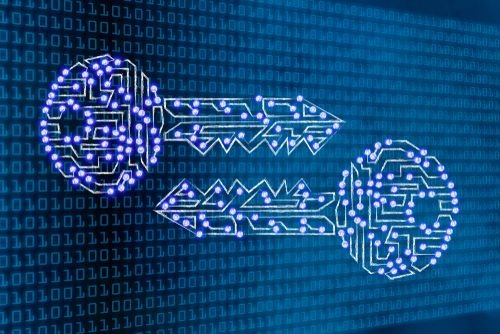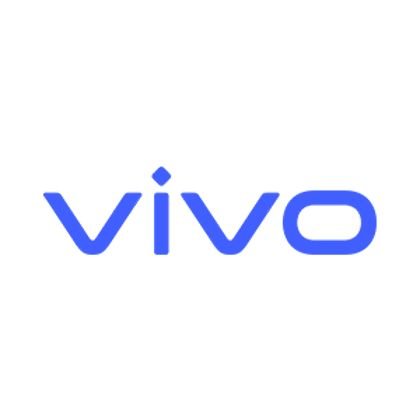
Quantum cryptography is an emerging field that combines principles of quantum mechanics with cryptography, aiming to create more secure methods of communication. As digital threats continue to evolve, the demand for quantum cryptography expertise is increasing. Whether you’re a student, professional, or enthusiast, numerous platforms provide courses and resources to help you master quantum cryptography. This article highlights the top platforms for learning quantum cryptography in 2024, breaking down their features, course content, and unique offerings to help you choose the best option for your learning needs.
1. Coursera
Overview:
Coursera is a well-known online learning platform offering a wide range of courses in science, technology, engineering, and mathematics (STEM), including quantum cryptography. With partnerships with leading universities and institutions, Coursera provides access to high-quality courses taught by renowned experts.
Key Features:
- University Collaborations: Courses are often developed in collaboration with top universities like Stanford, MIT, and the University of Maryland.
- Flexible Learning: Courses can be taken at your own pace, allowing you to balance learning with other commitments.
- Certificates: Upon completion, you can earn certificates to showcase your knowledge and skills.
- Peer Community: Access to a community of learners to discuss and share ideas.
Notable Courses:
- “Quantum Computing and Quantum Cryptography” by the University of Maryland: A comprehensive introduction to quantum computing concepts and how they apply to cryptography.
- “Quantum Mechanics for Cryptographers” by Stanford University: Focuses on the quantum mechanical principles necessary for understanding quantum cryptography.
2. edX
Overview:
edX, founded by Harvard and MIT, is another leading platform offering online courses from top universities worldwide. It provides various courses on quantum cryptography, ranging from beginner to advanced levels.
Key Features:
- University-Backed Courses: Offers courses from institutions like MIT, Harvard, and UC Berkeley.
- Verified Certificates: You can earn a certificate to verify your skills and knowledge for a fee.
- Free Audit Option: Many courses are available to audit for free, allowing you to access course materials without a certificate.
Notable Courses:
- “Quantum Cryptography” by Delft University of Technology: An in-depth exploration of the principles of quantum cryptography, including practical applications.
- “Introduction to Quantum Computing and Cryptography” by MIT: Covers the basics of quantum computing, quantum key distribution, and post-quantum cryptography.
3. Quantum Computing Institute (QCI)
Overview:
The Quantum Computing Institute is a specialized platform focusing solely on quantum computing and quantum cryptography education. It offers a wide range of courses designed by experts in the field.
Key Features:
- Specialized Focus: Focuses exclusively on quantum computing and cryptography, providing a deeper and more targeted learning experience.
- Practical Approach: Includes hands-on exercises and projects to help learners understand quantum cryptography concepts.
- Expert Instructors: Courses are designed and taught by leading researchers and practitioners in quantum computing and cryptography.
Notable Courses:
- “Fundamentals of Quantum Cryptography”: A beginner-friendly course that introduces the core principles of quantum cryptography.
- “Advanced Quantum Cryptography”: An advanced course focusing on quantum-resistant cryptographic protocols and algorithms.
4. Qiskit by IBM Quantum
Overview:
Qiskit, developed by IBM Quantum, is an open-source quantum computing software development framework. While it primarily focuses on quantum computing, it also offers resources and tutorials on quantum cryptography.
Key Features:
- Hands-On Experience: Provides an interactive environment where you can write quantum algorithms and test them on real quantum computers.
- Comprehensive Tutorials: Offers step-by-step tutorials on quantum cryptography, covering both theory and practical implementation.
- Community Support: A large community of quantum computing enthusiasts and experts to support and guide learners.
Notable Courses:
- “Introduction to Quantum Cryptography with Qiskit”: A tutorial series that teaches the basics of quantum cryptography using Qiskit.
- “Building Quantum Cryptographic Protocols”: An advanced tutorial on developing quantum cryptographic protocols and testing them on IBM’s quantum computers.
5. FutureLearn
Overview:
FutureLearn offers a variety of courses in technology and computer science, including quantum cryptography. It partners with universities and institutions worldwide to deliver accessible, high-quality courses.
Key Features:
- Collaborative Learning: Encourages interaction with instructors and fellow learners through discussion forums and group activities.
- Short Courses: Most courses are short and can be completed in a few weeks, making them ideal for learners with limited time.
- Certificates of Achievement: Provides certificates upon completion that can be shared on professional networks like LinkedIn.
Notable Courses:
- “Introduction to Quantum Cryptography” by the University of York: A beginner-friendly course covering the foundational concepts of quantum cryptography.
- “Quantum Communications and Cryptography” by the University of Edinburgh: Focuses on quantum communication protocols and their applications in cryptography.
6. Udacity
Overview:
Udacity is known for its “nanodegree” programs that provide in-depth learning in specialized areas, including quantum computing and cryptography. Its courses are designed in collaboration with industry leaders to ensure they are relevant to current job market needs.
Key Features:
- Project-Based Learning: Emphasizes hands-on projects that help learners build a portfolio of work to showcase to potential employers.
- Industry Partnerships: Courses are developed in collaboration with companies like Google, IBM, and Amazon.
- Mentorship and Career Support: Offers mentorship and career support services, including resume reviews and interview preparation.
Notable Courses:
- “Quantum Computing for Cryptographers”: Covers the basics of quantum computing and its implications for cryptography.
- “Quantum Cryptography Nanodegree”: A specialized program focused on quantum cryptography, including practical exercises and real-world projects.
7. Quantum Online
Overview:
Quantum Online is a platform dedicated to quantum education, offering a range of courses on quantum computing, quantum mechanics, and quantum cryptography. It caters to various learning levels, from beginners to advanced professionals.
Key Features:
- Wide Range of Courses: Offers courses in various quantum-related fields, including cryptography.
- Flexible Learning Options: Self-paced courses allow learners to study according to their schedules.
- Live Sessions: Includes live sessions with experts for real-time learning and Q&A.
Notable Courses:
- “Introduction to Quantum Cryptography”: A basic course that introduces the fundamental concepts of quantum cryptography.
- “Quantum Key Distribution and Post-Quantum Cryptography”: Focuses on the practical applications of quantum cryptography in secure communications.
8. MIT OpenCourseWare
Overview:
MIT OpenCourseWare (OCW) offers free access to course materials from a wide range of MIT’s courses, including quantum cryptography. While these are not formal courses, they provide comprehensive content from actual university courses.
Key Features:
- Free Access: Provides free access to high-quality course materials, including lecture notes, assignments, and exams.
- Self-Paced Learning: Allows learners to study at their own pace without any formal enrollment.
- Wide Range of Resources: Offers a variety of resources, including video lectures, reading materials, and problem sets.
Notable Courses:
- “Quantum Computation and Quantum Information” by MIT: A comprehensive course covering quantum computing and its applications in cryptography.
- “Introduction to Quantum Cryptography”: Offers foundational knowledge and advanced concepts in quantum cryptography.
9. Udemy
Overview:
Udemy is a popular online learning platform that offers various courses on quantum computing and quantum cryptography. It is known for its affordability and accessibility, making it a good choice for learners on a budget.
Key Features:
- Affordable Courses: Provides affordable courses with frequent discounts and sales.
- Wide Range of Options: Offers a broad selection of courses at different difficulty levels.
- Lifetime Access: Grants lifetime access to course materials, allowing learners to revisit content anytime.
Notable Courses:
- “Quantum Cryptography for Beginners”: A basic course designed to introduce learners to the principles of quantum cryptography.
- “Advanced Quantum Cryptography”: An in-depth course for those who want to delve deeper into the complexities of quantum cryptography.
10. Khan Academy
Overview:
Khan Academy is a free online education platform that offers a range of STEM courses, including introductory content on quantum mechanics and cryptography. While it may not offer specialized quantum cryptography courses, it provides a good foundation in related subjects.
Key Features:
- Free and Accessible: All courses are free and accessible to anyone with an internet connection.
- Interactive Content: Offers interactive exercises and quizzes to reinforce learning.
- Foundational Learning: Focuses on building a strong foundation in mathematics and physics, essential for understanding quantum cryptography.
Notable Courses:
- “Introduction to Cryptography”: Covers basic cryptographic concepts, which are essential for understanding quantum cryptography.
- “Quantum Mechanics Basics”: Provides foundational knowledge necessary to grasp the principles of quantum cryptography.
Conclusion
Quantum cryptography is a rapidly growing field with significant potential to revolutionize secure communication methods. As interest in this area continues to rise, various platforms offer diverse learning opportunities to cater to different needs and skill levels. Whether you prefer university-backed courses, specialized platforms, or hands-on tutorials, there is an option that suits your learning style. By leveraging the resources provided by these top platforms, you can build a solid foundation in quantum cryptography and prepare yourself for a future in this cutting-edge field.
Each of these platforms offers unique advantages, from flexible learning schedules and community support to in-depth courses and practical experience. As you explore these options, consider your personal goals, learning style, and the specific aspects of quantum cryptography you wish to focus on. With dedication and the right resources, you can develop the skills needed to excel in this exciting and dynamic field.







